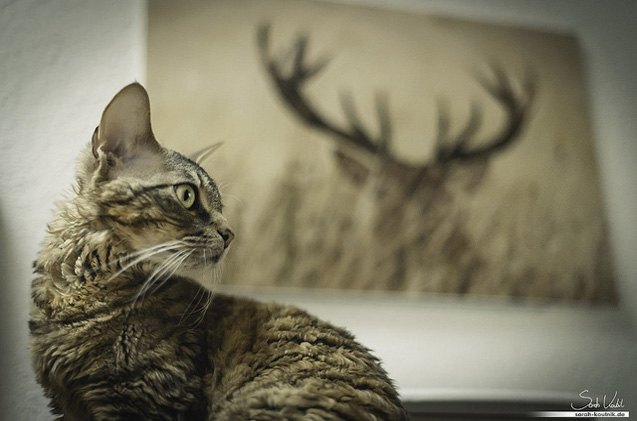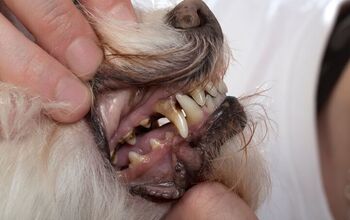German Rex


About German Rex
The German Rex can be traced back to the middle of the 1940s in Germany, but it only became recognized as a breed in 1951 after the Cornish Rex was discovered in 1950.
The very first German Rex was a feral black cat that was found shortly after World War II ended. She was rescued by Dr. R. Scheuer-Karpin after being seen wandering East Berlin, and she was named Lammchen.
Like the Cornish Rex, Lammchen had the wavy hair gene, and she was able to produce several litters as the years passed. But in 1957, she was bred with one of her offspring, resulting in the very first litter of kittens known as the German Rex.
As more of these cats were produced, they eventually made their way to America, though the Cornish Rex remained more popular, and because the two breeds are genetically similar, the German Rex is quite rare today.
German Rex cats are lively and friendly, and they’ll get along really well with just about anyone, from young children to the elderly.
German Rex cats are lively and friendly, and they’ll get along really well with just about anyone, from young children to the elderly. They’re quite playful and enjoy being active and exercising, so give them plenty of room to run around and loads of toys to play with.
These cats are smart, too, so you can teach them to play games like fetch, or you can teach them to perform some impressive acrobatic tricks on command.
Even though these kitties like being active, they’re also patient and loyal, so they’ll gladly spend time snuggling with you, and they adore being petted and pampered. Ultimately, they love spending as much time as possible with their owners.
The German Rex is a unique looking cat with a medium sized body and slender, long legs. The cat is muscular and heavier than the Cornish Rex, and it also has a round face and large ears.
The whiskers are quite distinct, with a slight curl, but the breed’s silky, curly, short coat is what truly stands out. It has very short awn hairs that are thicker than the fur within the undercoat, so the German Rex looks woollier than the Cornish Rex.
The German Rex comes in a variety of colors that include white, black, cream, blue, brown, red, fawn, platinum, frost, seal, champagne, lavender, cinnamon, chestnut, and chocolate.
They also come in patterns that include solid, bicolor, calico, ticking, tabby, shaded, pointed, smoke, and tortoiseshell.
Because the German Rex is a shorthaired breed, you don’t need to worry too much about brushing too often. Just regularly examine your cat’s eyes and ears, and brush your pet weekly with a fine comb or a bristle brush in order to keep the fur smooth and beautiful.
However, because this breed doesn’t have enough hair to absorb all of the oil that’s naturally produced by the skin, your cat may begin to feel greasy. To prevent this buildup of oil, regularly bathing your German Rex is necessary.
Photo credit: Antonio Martelli/Flickr; Sarah K./Flickr; OneWorldBengals/Flickr

Lisa Selvaggio is a freelance writer and editor, and our resident cats-pert, with certifications in pet nutrition and pet first aid. She enjoys producing content that helps people understand animals better so they can give their pets a safe and happy home.
More by Lisa Selvaggio

























